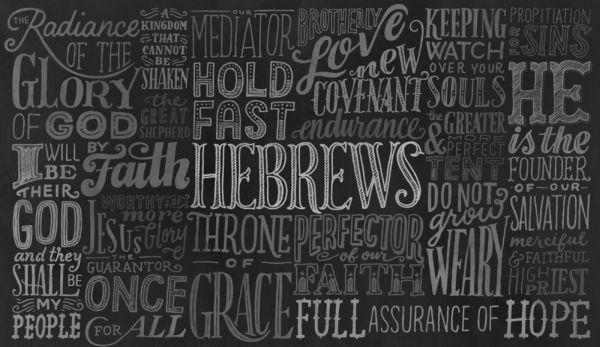Session 23 - Hebrews
Author
Uncertain. Almost certainly a Jewish Christian. There are some assumptions it was Paul, but few people think this is conclusive. Even though Clement of Rome drew much from Hebrews in his late-first-century letter to the Corinthian church, many in the Western church pointed away from Paul as the source of the book. Authors such as Luke, Barnabas, Apollos, and even Clement have been considered as possibilities. We simply do not know for certain.
The unknown authorship of this book should not shake our confidence in its authority. Hebrews makes important theological contributions to the biblical account, it has been drawn upon as sacred Scripture since the late first century, and Christians have for two millennia consistently upheld the divine inspiration and canonicity of Hebrews.
The strongly Jewish character of the letter to the Hebrews helps to narrow down its date of composition, most likely AD 64-69. Significantly, the book makes no reference to the destruction of the temple at Jerusalem in AD 70, and the author wrote as if the old sacrificial and priestly system were still in existence (10:1, 2, 11) and needed to be addressed. With its many references to Hebrew customs and the Old Testament, the book was likely sent to a Jewish Christian community, possibly in Rome (see 13:24). The author knew Timothy (13:23).
Date of Composition
Most likely written around 67.
Purpose and Audience
To proclaim the supremacy of God's Son, Jesus Christ, and the (better) New Covenant in Him.
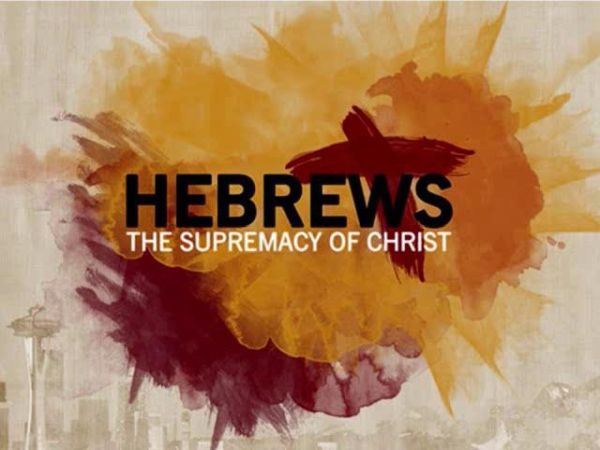
Christianity started out seen as a sect of Judaism. As more Gentiles became Christians, the Jewish proportion shrunk. This posed serious questions for Jewish believers, who came to realize that Jesus was not merely to be bolted onto old traditions, but made a complete break with the traditions that they had lived by. Many wanted to live by the Laws, observe its rituals and evn observe the old sacrifices in order to please God. Paul made it clear that salvation was for Gentiles and well as Jews (eg Acts 28:28). Judaism was exclusive; Peter's message at Pentecost (Acts 2) proclaimed salvation to the world.
Hebrews was written to present the Lord Jesus Christ as perfect and superior in comparison to anything Judaism and the Old Covenant had to offer. The author was writing to a group of Christians who were under intense persecution and some were contemplating a return to Judaism. He admonishes them not to turn away from their only hope of salvation.
Hebrews lays out the present priestly ministry of Christ in God's economy and the life of the believer. Jesus is both the divine Son of God and completely human. In His priestly role He clears the way for human beings to approach the Father in heaven through prayer (4:14-16). The priesthood of Jesus is superior to the Old Testament priesthood of Aaron, because only through Jesus do we receive eternal salvation (5:1-9). Furthermore, Jesus became the permanent and perfect High Priest, going beyond all other priests by offering Himself as a sinless sacrifice on behalf of the sins of human beings (7:24-26; 9:28).
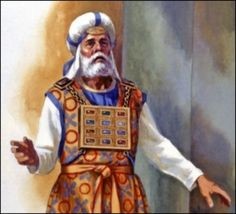
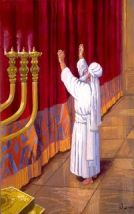
The old has gone.
Hebrews makes clear that Jesus Christ exceeds all other people, pursuits, objects, or hopes to which human beings offer allegiance. It pictures Jesus as better than the angels; as bringing better life to humanity through salvation; as offering a better hope than the Mosaic Law could promise; as a better sacrifice for our sins than used to be achieved by sacrificing a bull or a goat; and as providing a better inheritance in heaven for those who place their faith in Him (1:4; 6:9; 7:19; 9:23; 10:34). Jesus is superior to all others.
This message of the superiority of Jesus would have been particularly important to Jewish Christians in Rome, who were struggling under Nero's persecution and were considering moving back toward the Mosaic Law. Judaism was an approved religion in the empire; its monotheism was accepted (an exception to the usual polytheistic systems). The writer to the Hebrews showed these Jewish Christian believers that, though they were faced with suffering (especially once Christian was seen as separate faith from Judaism) they were indeed following a better way, and they should persevere.
Hebrews helps us grasp and interpret the Old Testament. In the writings of the Old Testament, the rituals and ceremonies of Judaism pointed to the coming of Messiah. In other words, the rites of the religion were only shadows or types of things to come. Hebrews tells us that Christ Jesus is better than anything formal religion has to offer. All the pomp and circumstance of religion pales in comparison to the person, work, and ministry of Christ Jesus. Everything is fulfilled in Him.
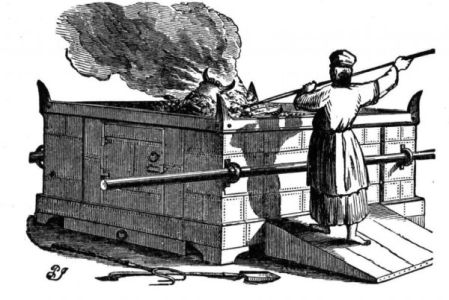
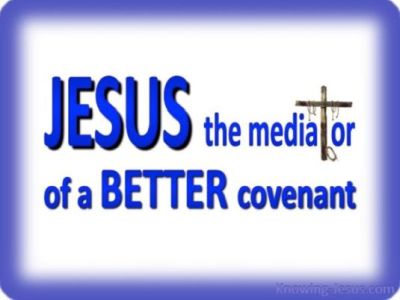
Perhaps nowhere in the New Testament does the Old Testament come into focus more than in Hebrews, which has as its foundation the Levitical priesthood. The writer constantly compares the inadequacies of the Old Testament sacrificial system (and its agents) to the perfection and completion in Christ. Where the Old Covenant required continual sacrifices and a once-a-year atonement for sin offered by a human priest, the New Covenant provides a once-for-all sacrifice through Christ (Hebrews 10:10), our perfect representative, and direct access to the throne of God for all who are in Him.
No prophet or way of salvation remain to be revealed to the world after Jesus Christ.
That is why there is no hope if we walk away from Him.
Structure
Hebrews covers a lot of complex issues, so it is helpful to have a precis of each chapter.
| Chapter 1 | The supremacy of Christ Jesus. Chapter 1 paints a wonderful picture of Jesus as creator, how He is superior to the angels because of His redemptive work on the cross. Jesus is the exact representation of the Father and was sent to communicate to us the true nature of God. By understanding who Jesus is and what He said, we can know the fullness of God's nature and character. |
| 2 | The role of Christ in salvation. Jesus briefly humbled Himself and took on human form (incarnation) so he could experience death for everyone. It was fitting that Jesus, through whom everything exists, be the author of salvation. He shared in humanity so that through His death he might destroy him who holds the power of death. We must pay close attention to this so we do not ignore such a great salvation and drift away from it. |
| 3 | Jesus is our faithful high priest who eternally presides over the house of God as a Son. Chapter 3 shows His superiority to Moses and the old covenant of the law. It also serves as a warning against allowing our hearts to become hard of heart and being drawn away by sin and unbelief. We are to encourage each other daily and stand strong until the end with confidence in Christ. |
| 4 | There is a true "Sabbath rest" for the people of God through faith in Christ. This rest is what was promised throughout the entire Old Testament. True Sabbath rest does not come from adhering to the law or taking a mandatory break from work one day of the week; some sects have taken the literal Sabbath to legalistic extremes. The believer's "rest" comes to fulfillment in our lives by fellowshipping with Christ. |
| 5 | Jesus is God's appointed High priest who became the source of eternal salvation for everyone who believes. He was subjected to the weakness of the flesh (the same weaknesses we face), yet without sinning. He learned obedience through what he suffered; in the same way he is able to help those who will inherit salvation. Jesus was designed by God to be our high priest forever in the order of Melchizedek. |
| 6 | This chapter contains a warning against walking away from the truth and becoming reprobate (damned). Falling away makes it impossible to come back to repentance because it subjects Christ once again to open shame. However, there are better things accompanying salvation for us who continue with Christ. We can proceed toward that steadfast hope entering through the veil which Christ has opened to us. |
| 7 | Compares Jesus and Melchizedek, a priest forever without lineage. Abraham paid honor and tithes to Melchizedek and by doing so the Levitical priesthood was blessed by him as Levi was still "inside" Abraham. In this fashion, Jesus is also a priest forever like Melchizedek. However He is not of the tribe of Levi. With a change in priesthood there must also be a change in the law. Jesus has proven His priesthood by his indestructible life. Because of this He is able to save completely those who draw near to God through Him since He always lives to intercede for them. |
| 8 | Jesus is the mediator of a new and better covenant (agreement) which has been enacted on better promises. Jesus is ministering in the heavenly tabernacle at the right hand of God, not in an earthly one (which was a copy and shadow of heavenly things). The New Covenant is written on our hearts and enables us to know the Lord in an intimate way. Jesus has promised to forgive our sins and remember them no more. The New Covenant has made the old one obsolete. |
| 9 | Worship in the OT could not perfect people because it related only to food, drink, ritual washings and regulations for the body. When Christ appeared He entered into the heavenly tabernacle and presented His blood on the mercy seat, so that we could be at peace with God. The blood of bulls and goats was never able to cleanse the conscience of the worshipper, but the blood of Christ is able to save completely as it cleanses us thoroughly and we are now without blemish or accusation before God. Christ appeared at the consummation of the ages to put away sin by His sacrifice. |
| 10 | The Law was never able to make people perfect because it was just a shadow of the good things to come, and not a reality in itself. Otherwise the sacrifices would have ceased to be offered. Instead they served as an annual reminder of sin. But when Jesus came He offered one sacrifice for sin for all time and then sat down at the right hand of the Father. Now we can draw near to God through the veil of Christ's body, having our hearts sprinkled clean and our conscience clear. |
| 11 | Here is a wonderful definition of faith, and pictures of people who triumphed by faith, who believed God and pursued His promises even though many didn't see them come to pass in their lifetime. This chapter defines faith and shows that it (alone) pleases God, whatever our diverse lives and circumstances. This is a great reminder for us as we navigate this life, clinging to the promises of God and looking forward to Jesus' return. |
| 12 | We are called to persevere in our Christian faith by looking to Christ as our example, the "pioneer" of our faith. He endured the shame of the cross to bring us into fellowship with God; we should keep our eyes on him as we run the race of life. We have received citizenship in an unshakable kingdom; let us show gratitude and offer our lives in service to Him. |
| 13 | The last chapter contains warnings, requests and final exhortations. It is a reminder of the fellowship of Christ, so that we let love remain, and show hospitality and honor each other. As well as remembering to pray for leaders in the church. The book ends on a wonderful note by reminding us that Jesus is the same yesterday, today and forever. |
Key Issues
The just will live by (His) faith (10:38, cf Hab 2:4; Rom 1:17; Gal 3:11).
What is faith? It is the real reality of things we hope for (11:1); without faith, we cannot please God (11:6). We are tempted to hug old ways, live within traditional boundaries, rest on what we know, and find a refuge (or an enclosed holiday camp) in what is certain, but these are not what pilgrimage is all about. That involves letting go of everything that ties us down to ways and methods that have nothing to do with God's bigger purpose.
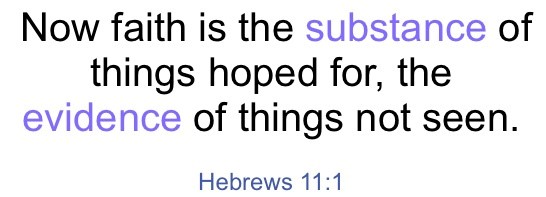
Christ has brought a "better" covenant
- a better messenger - 1:1-2:18
- a better apostle - 3:1-4:13
- a better priest - 4:14-7:28
- a better covenant - 8:1-9:28
- a better sacrifice - 10:1-31
- a better way = faith - 10:32-12:29
- His work continues
If God gave the original law to Moses, He has now given a new way of salvation. Jesus' sacrifice is once for all; he is the ultimate priest, who both represents the people but has access to God to present the ultimate sacrifice, which is acceptable top God and is now good for all time. Interim systems of sacrifices (including the old covenant through Moses) are obsolete and done away with forever. There is no going back, no return to a system that has been done away with.
There are warnings against unbelief, indifference, neglect, disobedience, unwillingness to obey the new revelation, and the temptation of rejecting the Gospel and abandoning the truth in Christ.
Who exactly is Melchizedek?
Melchizedek, whose name means "king of righteousness," was a king of Salem (Jerusalem) and priest of the Most High God (Genesis 14:18-20; Psalm 110:4; Hebrews 5:6-11; 6:20—7:28). His sudden appearance and disappearance in Genesis is somewhat mysterious. Melchizedek and Abraham first met after Abraham's defeat of Chedorlaomer and his allies. Melchizedek presented bread and wine to Abraham and his men, demonstrating friendship. He bestowed a blessing on Abraham in the name of El Elyon ("God Most High") and praised God for giving Abraham a victory in battle (Genesis 14:18-20). Abraham presented Melchizedek with a tenth of all the items he had gathered. By this act Abraham indicated that he recognized Melchizedek as a high-ranking priest.
In Psalm 110, a messianic psalm written by David (Matthew 22:43), Melchizedek is presented as a type of Christ. This theme is repeated in Hebrews, where Melchizedek and Christ are considered kings of righteousness and peace. By citing Melchizedek and his unique priesthood as a type, the writer shows that Christ's new priesthood is superior to the old Levitical order and the priesthood of Aaron (Hebrews 7:1-10).
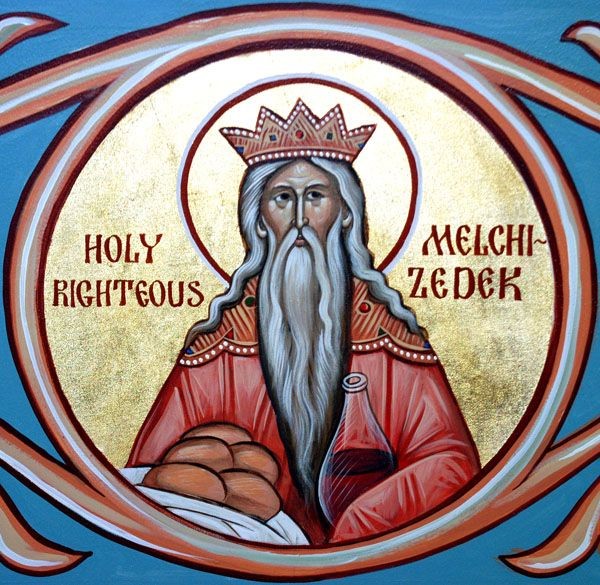
Melchizedek is a type of Christ, prefiguring His ministry. Some see Him as a pre-incarnate manifestation of Christ, but this much is not clear.
Practical Instructions in Christian living (13:9-18):
Even if you do not have a Jewish background, Hebrews is relevant. It emphasizes the importance of remaining true to Christ, regardless of social pressures to go back to our old ways of living. Only by being strong in our faith and relationship with Him can we hope to receive His promises. We are all called to a new life and discipleship.
- Keep on loving each other as brothers and sisters.
- Don't forget to show hospitality to strangers, for some who have done this have entertained angels without realizing it.
- Remember those in prison, as if you were there yourself.
- Remember also those being mistreated, as if you felt their pain in your own bodies.
- Give honor to marriage, and remain faithful to one another in marriage. (God will surely judge people who are immoral and those who commit adultery.)
- Don't love money; be satisfied with what you have. For God has said, 'I will never fail you. I will never abandon you'.
- Say with confidence, 'The Lord is my helper, so I will have no fear. What can mere people do to me?'
- Remember your leaders who taught you the word of God. Think of all the good that has come from their lives, and follow the example of their faith.
- Do not be attracted by strange, new ideas. Your strength comes from God's grace, not from rules about food, which don't help those who follow them.
- Remember that this world is not our permanent home; we are looking forward to a home yet to come.
- Offer through Jesus a continual sacrifice of praise to God, proclaiming your allegiance to his name.
- Don't forget to do good and to share with those in need.
- Obey your spiritual leaders, and do what they say. (Their work is to watch over your souls, and they are accountable to God. Give them reason to do this with joy and not with sorrow. That would certainly not be for your benefit.)
- Pray for spiritual leaders.
- Live honorably in everything you do.
For Reflection:
- "Let us..."be diligent, hold fast our profession of faith, draw near to the throne of grace, press on to perfection, consider one another, lay aside every weight, run the race marked out for us, offer up a sacrifice of praise." Our strength comes from God's grace, not regulations (13:9). These are all words of encouragement.
- "let us run with endurance the race God has set before us" (12:1) - what heat and lane has God has placed you in? what is your finishing line? do you sometimes drift into other lanes?
- Pay attention to the voice of the Holy Spirit in your life (3:7, 15). Start with the assumption that He IS speaking to you today.
- Look out for one another, so that sin will not deceive, harden your heart (3:13).
- "There is a special rest still waiting for the people of God. For all who have entered into God's rest have rested from their labours, just as God did after creating the world" (4:9, 10). Are you struggling, striving to please God, dealing with your problems and issues, in your own wisdom and strength. God's rest is available to you even now.
- "For the word of God is alive and powerful. It is sharper than the sharpest two-edged sword, cutting between soul and spirit, between joint and marrow. It exposes our innermost thoughts and desires" (4:12). How are you allowing the Word of God to do His work in your life?
- "Nothing in all creation is hidden from God. Everything is naked and exposed before his eyes, and he is the one to whom we are accountable" (4:13). How are you living?
- "He will come again, not to deal with our sins, but to bring salvation to all who are eagerly waiting for him" (9:28). Are you living in the expectation of His return?
- Think about what it means to belong to a "kingdom that cannot be shaken" (12:28).
- Think about the implications now of 13:14: "This world is not our permanent home; we are looking forward to a home yet to come." Like Abraham, we are "confidently looking forward to a city with eternal foundations, a city designed and built by God" (11:10).
"Jesus Christ is the same yesterday, today, and forever" (13:8).
